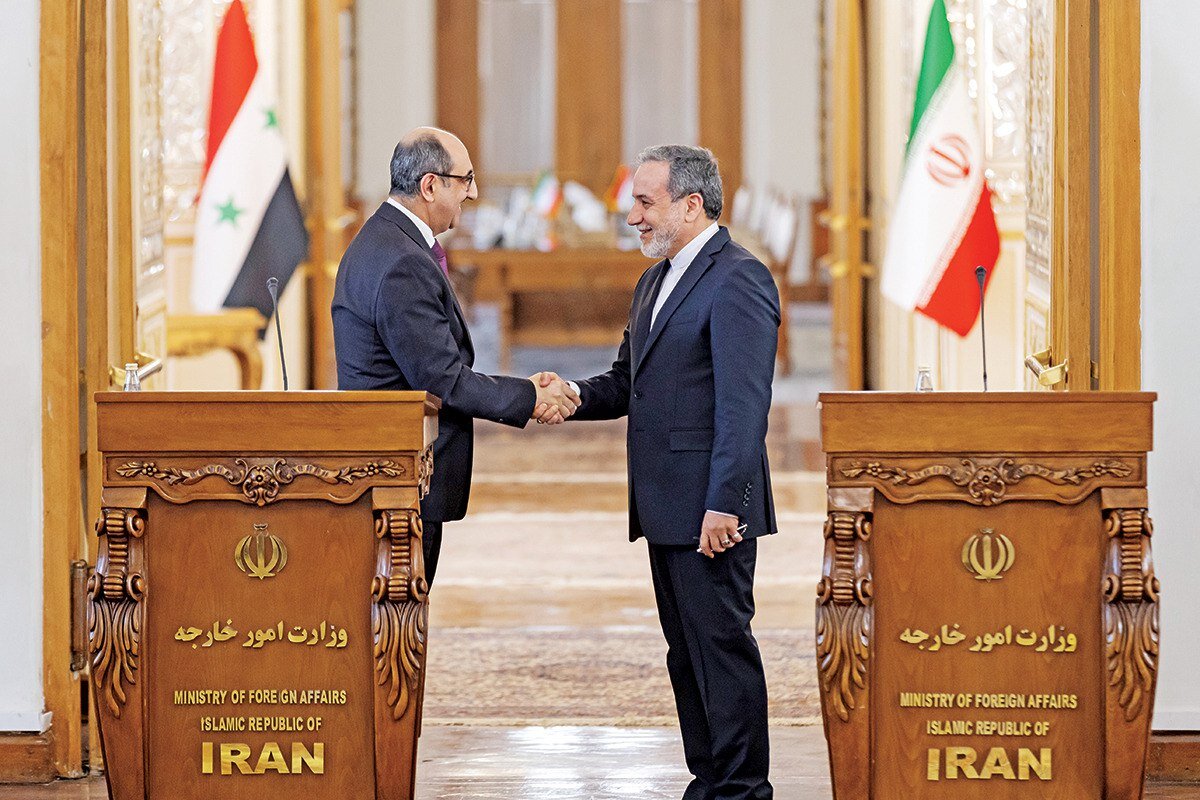Tehran-Damascus: Resilient Ties
Capitals of Iran and Syria recently hosted high-level officials to enhance coordination on critical regional issues

TEHRAN – Iran has a strong will to expand cooperation with Syria in various fields and it will continue to stand by the Syrian nation and government, according to the country’s foreign minister.
In a joint press conference with his Syrian counterpart Bassam Sabbagh following their meeting in Tehran, Abbas Araghchi said they had “very positive” discussions on the war in Gaza and Lebanon and the “strategic and solid” relations between the two countries.
“We welcome Syria's stability and unity, and condemn any attempts to destabilize the country,” he said.
Denouncing Israel’s repeated aggressions against Syria and Lebanon, Araghchi underscored the hostile and expansionist nature of the Zionist regime. He called on the international community and the United Nations to hold Israel accountable and end their prolonged inaction.
Addressing Israeli and Western threats against Iran, Araghchi emphasized Iran’s demonstrated resolve to confront any aggression, particularly from Israel. He affirmed Iran’s right to respond decisively to any acts of hostility, declaring, “Iran has proven to the Israeli regime and any aggressor that we will not allow any attack on Iranian territory to go unanswered.”
He stressed that Iran’s decisions are rooted in careful deliberation and wisdom, not impulsiveness. “We respond at the appropriate time, making decisions with insight rather than emotion,” he noted, highlighting Tehran’s calculated approach to regional challenges.
Araghchi also pointed to the failure of the U.S. “maximum pressure” strategy, contrasting it with Iran’s successful policy of “maximum resistance.” He urged Washington to abandon its ineffective pressure tactics in favor of “maximum rationality,” arguing that such an approach would yield better outcomes.
US urged to pursue maximum rationality: Araghchi
He said the strategy of maximum pressure from the US has failed, as evidenced by Iran's resilience.
“The policy of pressure does not work, and we have demonstrated in practice that when they adopted a maximum pressure strategy, Iran implemented maximum resistance, and US officials have admitted that their policy has failed."
He suggested that instead of pursuing maximum pressure, the Americans must adopt a policy of maximum rationality and this would likely yield different results.
The Syrian foreign minister stated that the escalation of Israeli tensions in the region is part of an American and Zionist project aimed at redrawing the map of the area, with Israel serving as a tool for this objective.
Sabbagh said while they have succeeded in driving out many terrorist groups, some remain concentrated in northern Syria, where the government has been actively fighting.
“The Israeli regime has failed to achieve its goals and seeks to keep Syria preoccupied within its own territory, but they will not be distracted by these issues,” he said.
Regarding bilateral agreements, he said the Joint Economic Commission will soon begin meetings in Damascus.
He expressed satisfaction with bilateral relations but acknowledged that more work needs to be done.
He suggested that Iran and Syria must work to create mechanisms to mitigate the harmful effects of the Western sanctions.
Sabbagh said the region is reeling from the crimes of Israel, being committed against Palestine and extended to Lebanon and even Syria. He said there must be a halt to the crimes before any effective delivery of humanitarian aid.
“The Israeli regime should be punished,” he said, adding that Syria opposes any form of occupation and supports Iran’s right to respond to any crime.
The Syrian foreign minister emphasized the need to end the Israeli occupation of the Golan Heights and reiterated commitment to bilateral cooperation against terrorism.
He said certain countries are taking destructive actions against the Syrian sovereignty and expressed hope for deeper coordination to confront these actions.
Both ministers condemned Israel’s crimes in Palestine, Lebanon, and Syria, calling for accountability and an end to Israeli occupation, particularly in the Golan Heights. Sabbagh reaffirmed Syria’s opposition to all forms of occupation and voiced support for Iran’s right to respond to acts of aggression.
The Iranian-Syrian partnership, forged through shared resistance against external coercion, continues to serve as a linchpin of West Asia’s Resistance politics. This alliance sends a strong message to regional actors seeking to weaken the Resistance Axis through offers of reconstruction aid or diplomatic enticements.
Reports suggest that certain countries are attempting to lure Syria away from the Resistance Axis with promises of reconstruction aid. Tehran and Damascus’ coordinated stance aims to counter these efforts, presenting their alliance as steadfast against external manipulation.
Iran and Syria’s coordinated stance underscores their resolve to counter hostile policies by Israel and its Western allies. As both nations confront sanctions, military threats, and regional rivalries, their united front will play a decisive role in shaping the future balance of power in West Asia. Their efforts to develop economic mechanisms and diplomatic outreach highlight a shared vision for resilience and sovereignty amid external challenges.
This enduring partnership symbolizes a powerful rejection of foreign intervention and a commitment to securing a more just and independent regional order.
Leave a Comment